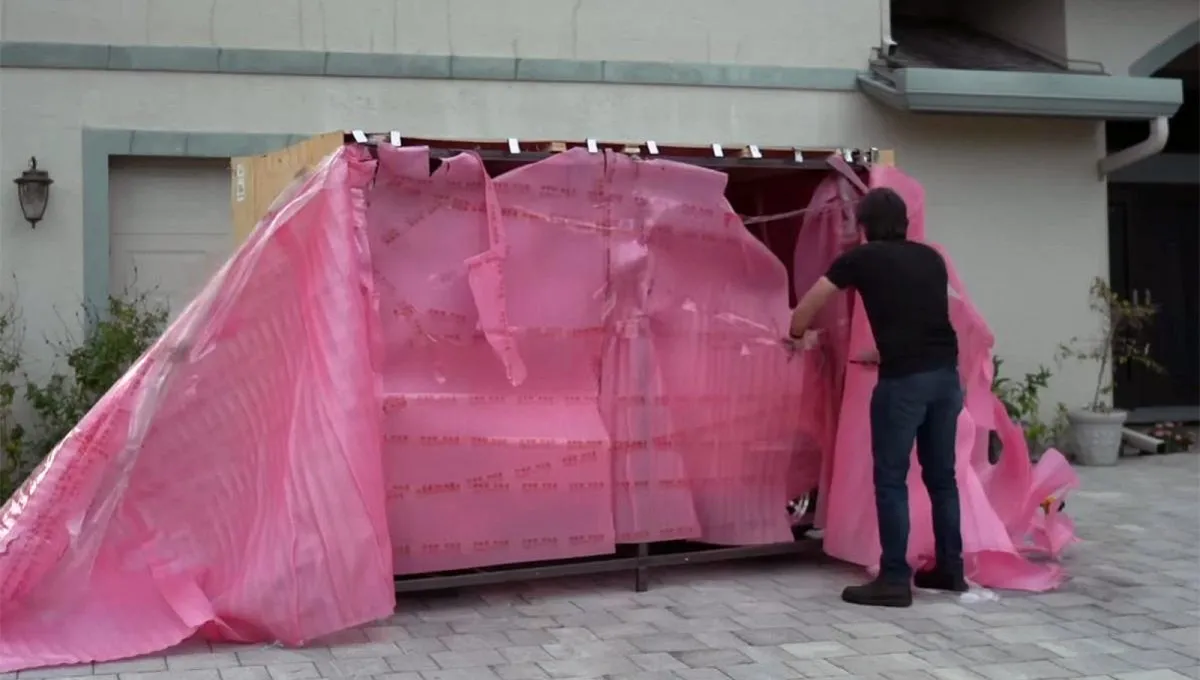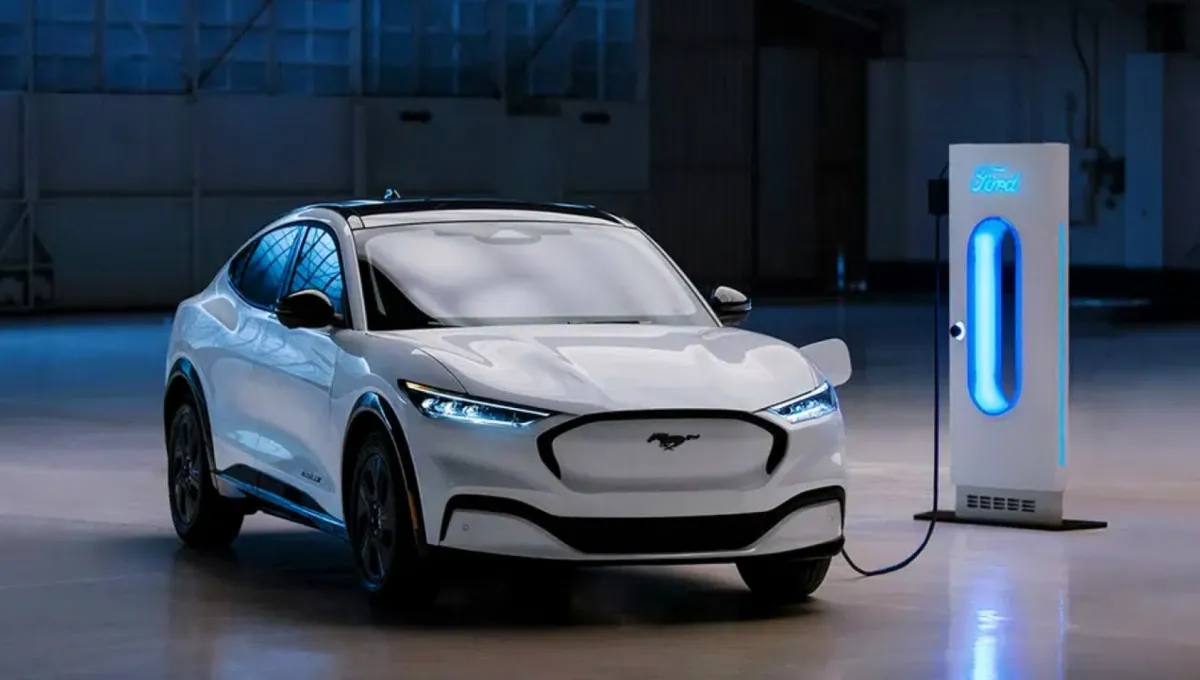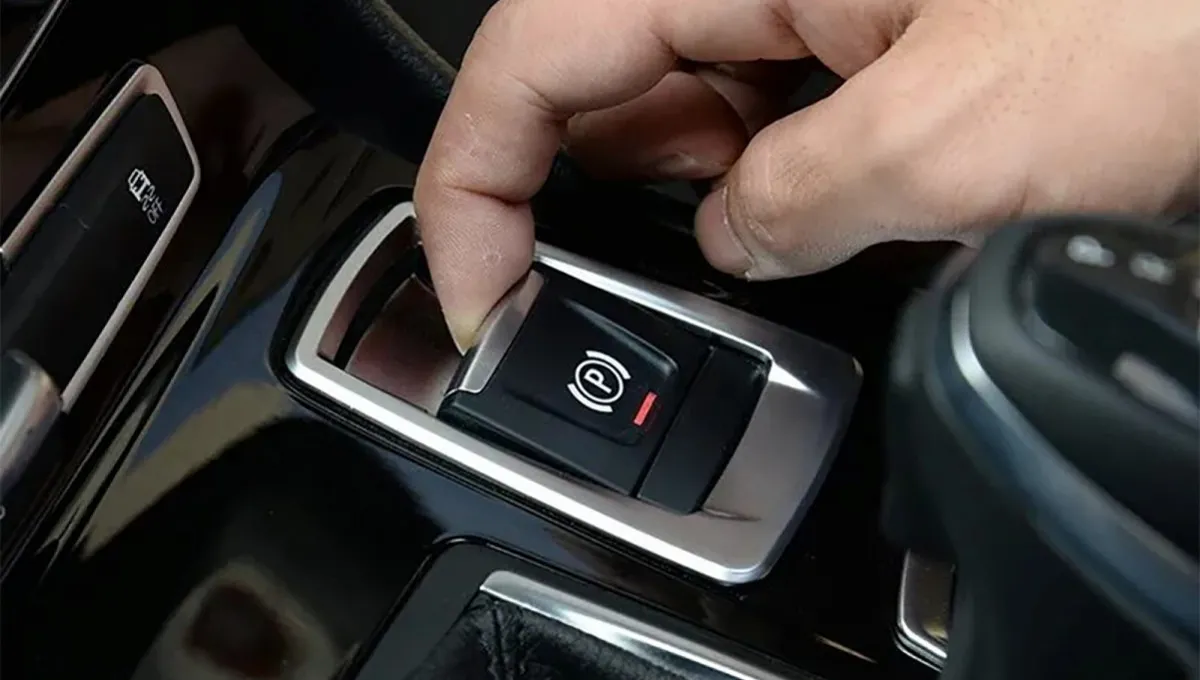Xiaomi YU7 Electric Car Caught Fire on Track: What Was the Reason?
During a test drive, the new Xiaomi YU7 Max electric crossover encountered issues with the braking system.

During a test drive organized by Dongchedi at the V1 circuit in Tianjin, the new Xiaomi YU7 Max electric crossover encountered an issue with its braking system. After several high-speed laps, the temperature of the front brakes exceeded 619°C, resulting in smoke emerging from the wheel arches and a brief fire in the calipers. The driver safely pulled into the pit lane, avoiding serious consequences. This incident has once again raised the question about the thermal endurance limits of OEM braking systems in electric vehicles under extreme conditions.
Xiaomi YU7 Brake Pads Caught Fire on Track: Company’s Official Statement

A bright orange-yellow flash is visible inside the wheel rim
Xiaomi swiftly responded to the incident through an online Q&A session. Company representatives explained that the fire occurred due to organic components in the composition of the low-metallic brake pads, which can ignite briefly at temperatures over 600°C. It was emphasized that the braking system itself retained functionality — no malfunctions or loss of efficiency were recorded.

An important factor was that during the test, the "Master Mode" with the "Enhanced Energy Recovery" feature was not activated. This mode provides regenerative braking up to 0.2G, significantly reducing the load on the mechanical brakes and helping to control heating. Without its use, all energy was dissipated solely by friction components, which led to overheating.

The YU7 Max is a rather heavy (2.3 tons) and powerful electric crossover, creating extreme demands on the brakes during aggressive driving. Xiaomi made it clear that production versions are not intended for track testing without additional preparation. The company recommends enthusiasts pre-upgrade the brake system (pads, discs, cooling) and thoroughly study the vehicle's limits before participating in such events.
This case highlighted the common problem of modern electric vehicles. OEM brake pads (NAO or low-metallic) are optimized for everyday driving and comfort. They reliably operate up to 400°C, but at higher temperatures, material decomposition begins. The situation is especially critical when the regenerative system automatically shuts off to protect the powertrain, transferring the full load to traditional brakes.

For safe track use, experts advise switching to sport pads rated for 650–700°C, with a friction coefficient of 0.4–0.5. Additional upgrades such as perforated discs, heat-resistant fluid, and braided lines also help to improve stability.
Following this incident, Xiaomi continues to record a record demand for the YU7. In just the first hour following the opening of sales, 289,000 orders were placed, and within 18 hours, 240,000 reservations were locked, effectively exhausting production capabilities until early 2027. The Beijing plant is working in two shifts (F1 and F2 lines) with a total annual capacity of 300,000 vehicles, while the F3 section is still in the planning phase. Meanwhile, the waiting period for the SU7 Pro has exceeded 47 weeks, and the company has tightened rules against the resale of reserved YU7 models.
You may also be interested in the news:

American Man Tests a Tiny Electric Car From China — and Is Shocked by How It Drives
This Chinese EV is smaller than a golf cart.

Are EVs Really More Reliable? Owners Are Complaining Less About Their Electric Cars
Analysts take a closer look at how satisfied electric vehicle owners are — and which models rank highest.

No One Saw This Coming: Three-Ton Hummer EV Outsprints Ferrari and Porsche
Yes, you read that right. The 2026 GMC Hummer EV Carbon Fiber Edition crushed five high-profile rivals at Texas Motor Speedway.

What Happens If You Press the Electronic Parking Brake (P) While Driving? Here’s What You Need to Know
Thousands of drivers wonder what happens if the electronic parking brake is pressed while driving, and whether it’s actually safe.

Expert’s Pick: Mechanic Names 6 Best Electric Vehicles for the Money
An industry expert says he recommends buying these EVs.